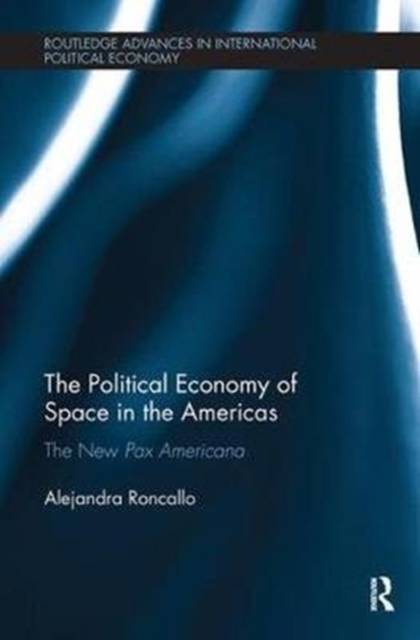
- Afhalen na 1 uur in een winkel met voorraad
- Gratis thuislevering in België vanaf € 30
- Ruim aanbod met 7 miljoen producten
- Afhalen na 1 uur in een winkel met voorraad
- Gratis thuislevering in België vanaf € 30
- Ruim aanbod met 7 miljoen producten
Omschrijving
This book presents a novel and cutting-edge interpretation of the evolving political economy of the Americas. Through a combination of qualitative research and theory, it considers the reconstruction of American-led hegemony in the Americas since the 1982 debt crisis and presents an examination of the new Pax Americana.
Drawing on the Gramscian concept of hegemony as understood by Robert Cox and Henri Lefebvre, this book argues that since the 1982 debt crisis there has been a reconstruction of American-led hegemony under the signature of neo-liberalism and that it has taken place in the last four ten-year developmental planning stages, 'market reforms' in the 1980s, 'good governance' in the 1990s, 'poverty reduction' in the new millennium and, currently, the 'disembedding of security'. Each "evolutionary stage" was constructed to secure the continuing motion of capitalist accumulation on a world scale. Moving from the global to the local scale, the book includes two detailed case studies on mining extraction in Bolivia to show how subaltern groups actually experienced and negotiated the transition from the old to the new Pax Americanas at the level of everyday life and what conflicts arose. The book ends with a chapter on President Evo Morales and the re-foundation of Bolivia as an indigenous nation.
The Political Economy of Space in the Americas will be of interest to students and scholars of political economy and Latin American politics.
Specificaties
Betrokkenen
- Auteur(s):
- Uitgeverij:
Inhoud
- Aantal bladzijden:
- 232
- Taal:
- Engels
- Reeks:
Eigenschappen
- Productcode (EAN):
- 9781138496309
- Verschijningsdatum:
- 12/02/2018
- Uitvoering:
- Paperback
- Formaat:
- Trade paperback (VS)
- Afmetingen:
- 156 mm x 234 mm
- Gewicht:
- 331 g

Alleen bij Standaard Boekhandel
Beoordelingen
We publiceren alleen reviews die voldoen aan de voorwaarden voor reviews. Bekijk onze voorwaarden voor reviews.









